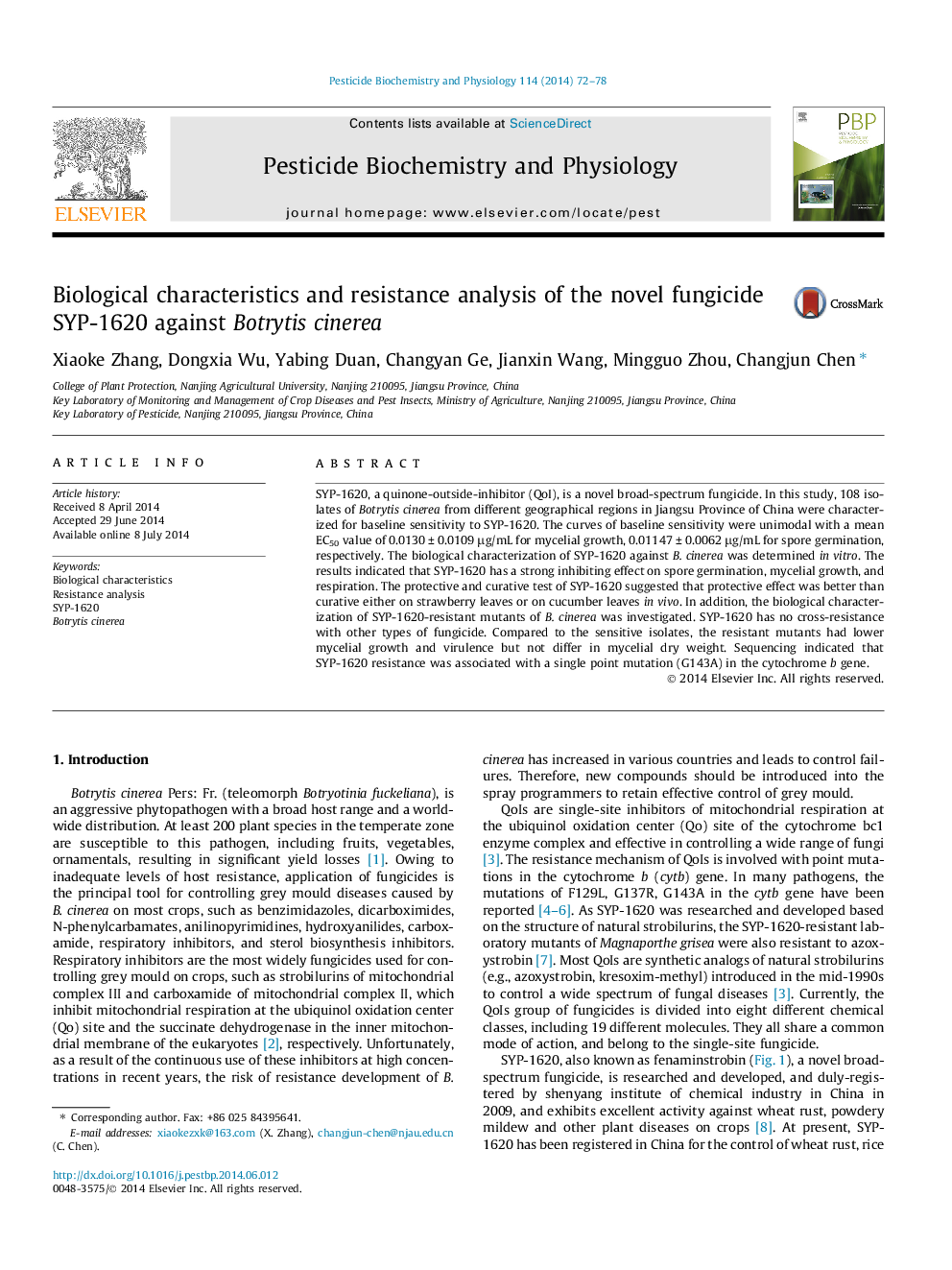| Article ID | Journal | Published Year | Pages | File Type |
|---|---|---|---|---|
| 2009244 | Pesticide Biochemistry and Physiology | 2014 | 7 Pages |
•We establish the baseline sensitivity of B. cinerea to QoI fungicide SYP-1620.•SYP-1620 has a strong inhibiting effect on spore germination and mycelia growth.•SYP-1620 has a strong inhibiting effect on respiration in the presence of SHAM.•SYP-1620 has a protective and curative effect on strawberry and cucumber leaves.•The resistance of SYP-1620 is involved with mutation in cytb of B. cinerea.
SYP-1620, a quinone-outside-inhibitor (QoI), is a novel broad-spectrum fungicide. In this study, 108 isolates of Botrytis cinerea from different geographical regions in Jiangsu Province of China were characterized for baseline sensitivity to SYP-1620. The curves of baseline sensitivity were unimodal with a mean EC50 value of 0.0130 ± 0.0109 μg/mL for mycelial growth, 0.01147 ± 0.0062 μg/mL for spore germination, respectively. The biological characterization of SYP-1620 against B. cinerea was determined in vitro. The results indicated that SYP-1620 has a strong inhibiting effect on spore germination, mycelial growth, and respiration. The protective and curative test of SYP-1620 suggested that protective effect was better than curative either on strawberry leaves or on cucumber leaves in vivo. In addition, the biological characterization of SYP-1620-resistant mutants of B. cinerea was investigated. SYP-1620 has no cross-resistance with other types of fungicide. Compared to the sensitive isolates, the resistant mutants had lower mycelial growth and virulence but not differ in mycelial dry weight. Sequencing indicated that SYP-1620 resistance was associated with a single point mutation (G143A) in the cytochrome b gene.
Graphical abstractFigure optionsDownload full-size imageDownload as PowerPoint slide
